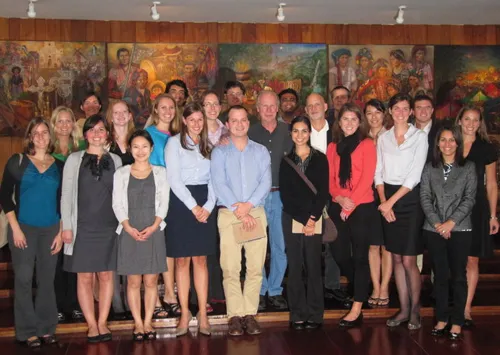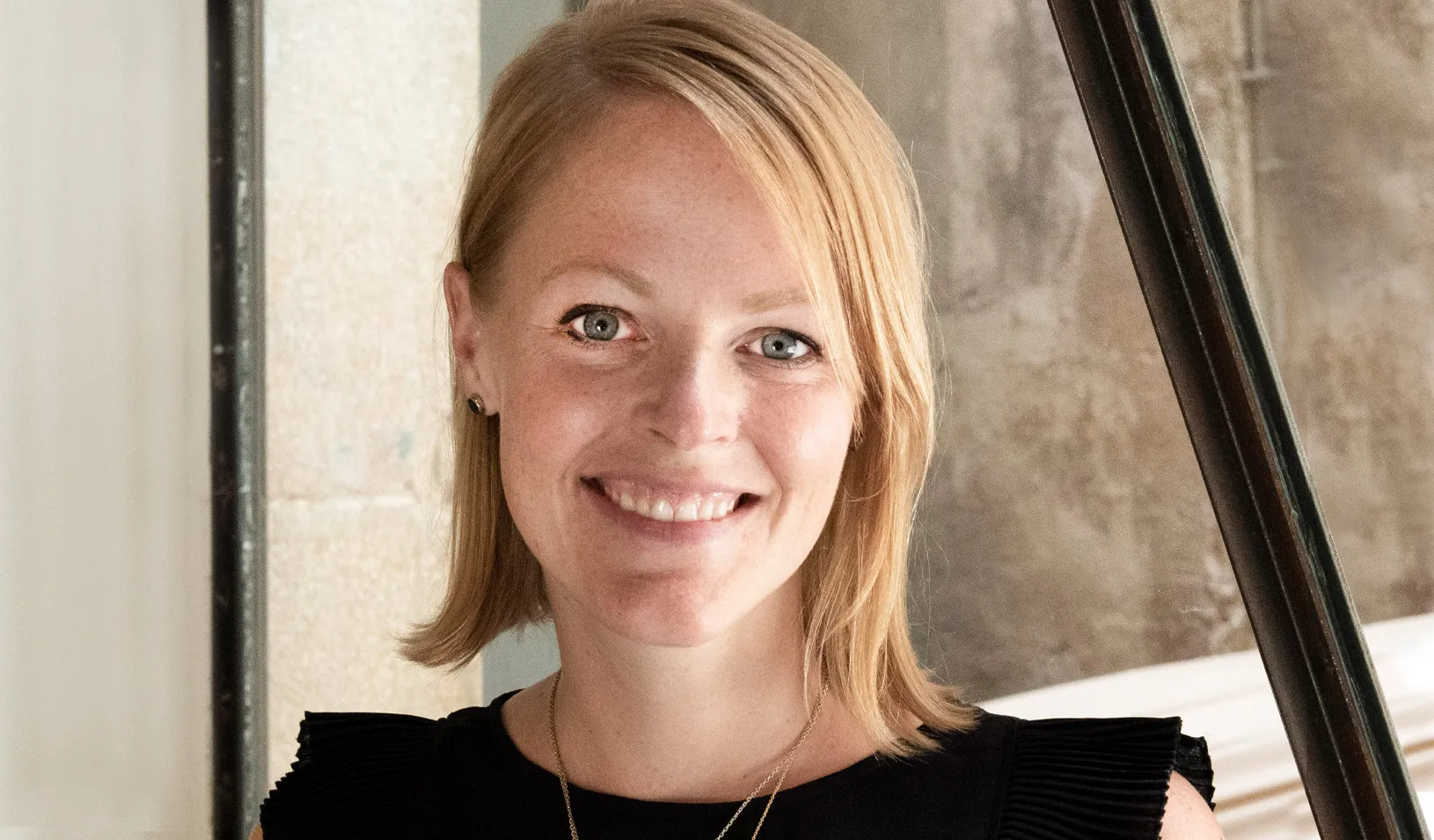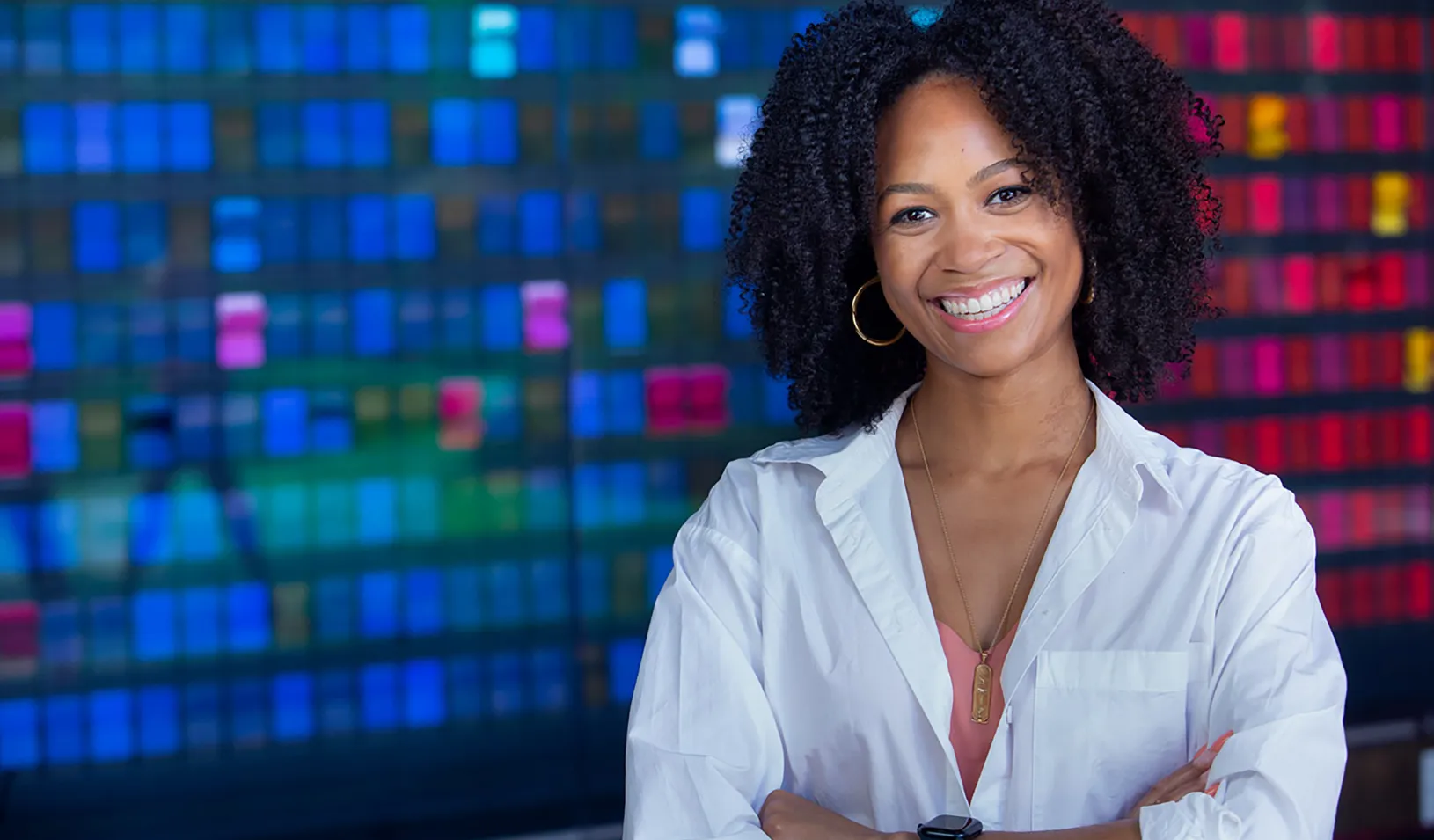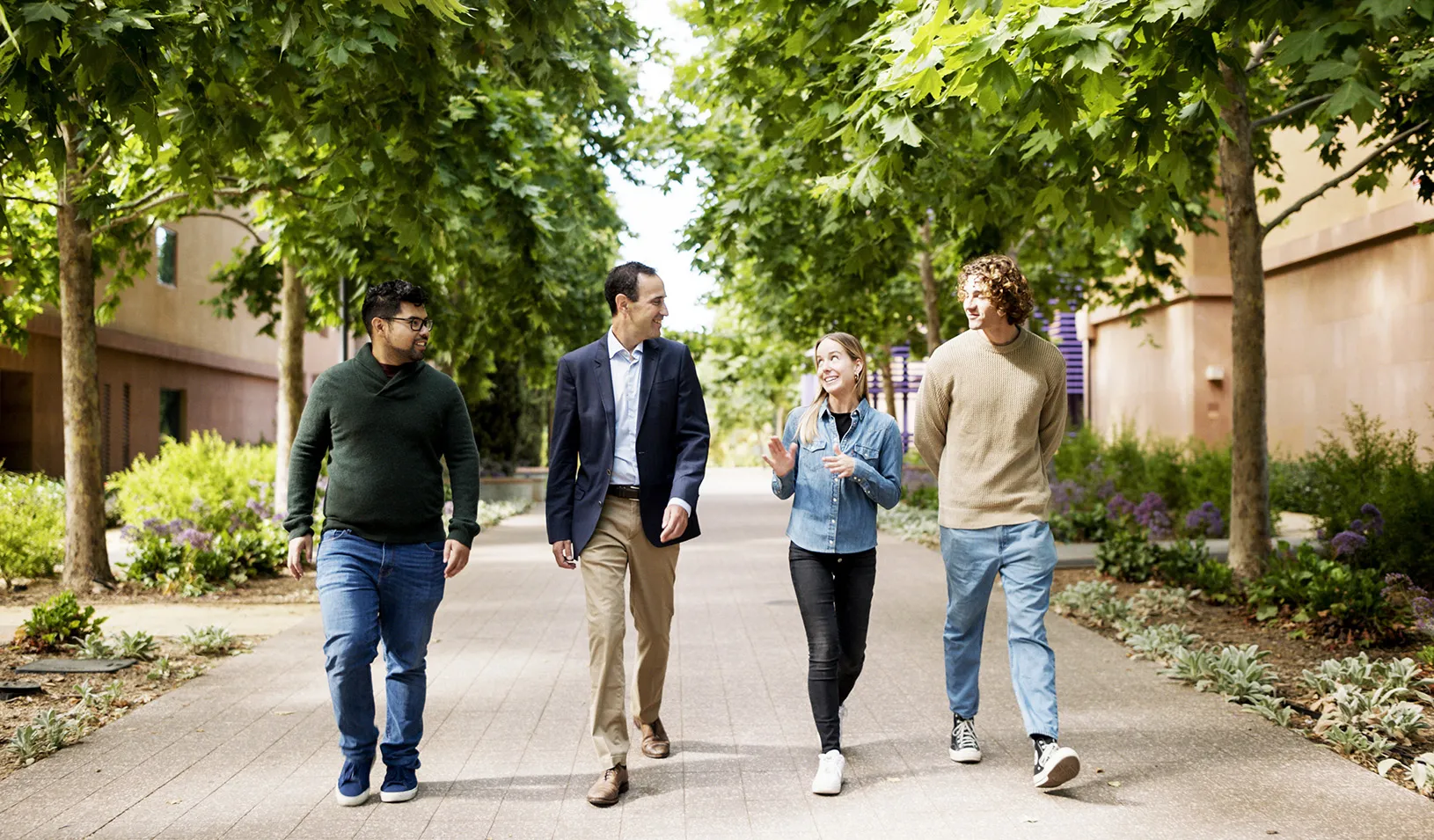New Student Company Gets Growers More Buck for the Bean
Three enterprising Stanford GSB MBA students make a significant difference in the world before they even graduate.
April 11, 2011
How can MBA students make a significant difference in the world before they even graduate? Take a look at the new company called Farm to Cup, an impressive example of student entrepreneurism in action.

Following a growing trend in the coffee industry to “cut out the middle man” so that farmers may reap top value from their crop, the three enterprising Stanford MBA students (‘12) — Monica Lewis, Catha Mullen, and twin sister Caroline Mullen — launched their bright enterprise in February of this year. The concept was easy to ramp up quickly: Buy raw coffee beans directly from the farmers, roast in the United States, carry inventory in their dorm rooms, create a retail Web site, and deliver.
By purchasing unique coffee directly from Guatemalan estates, Farm to Cup has so far been able to offer growers from $4 to $5 per pound — far more than the fair trade floor price of $1.26, and more still than the Guatemalan average of $1.10, according to data by Fair Trade International.

The idea for the company came to Lewis just a few months ago, in December, while she was on a service learning trip to Guatemala with some two-dozen first and second-year Stanford MBA students. Amidst visits to farms, meetings with coffee industry experts, days picking beans, and an afternoon laying bricks for a new school on a coffee farm cooperative, the idea for creating a direct sales channel began to take root.
“I began to think of all the intermediaries in the supply chain that extract value from the coffee, and then I began to think of how sites like eBay connect the buyer and seller directly,” says Lewis, now CEO, who worked in the sustainable development arena at the global consulting firm Arup before coming to Stanford. “I thought: This could be a great model for the coffee industry, offering obvious financial benefits to farmers and giving customers easy access to outstanding, single-origin coffees.”
Upon returning to Stanford, Lewis floated her idea by Michael Dearing, former senior VP of eBay, and Perry Klebahn, former head of sales and marketing of Patagonia and CEO of Timbuk2, both faculty consultants to an entrepreneurism course at the Stanford Design School. “They enthusiastically told me to go for it, and that pushed me over the edge into launching the company,” Lewis says.

She quickly enlisted both Mullens, who had also gone on the December trip in search of how to apply their learning more directly. Brainstorming together (over coffee, of course), the team decided to hire Web developers to launch the site (from-farm-to-cup.com) and use their own funds to buy 100 pounds of coffee from the As Green as It Gets Cooperative they connected with while on the trip.
Simply by soliciting friends, family, and their extended Facebook and Twitter networks, Farm to Cup sold nearly all of its initial beans and attracted more than 3,000 page views within the first four weeks of the site’s February launch. “It’s particularly exciting that we now have orders from people we don’t know,” says Catha Mullen, who has taken the role of COO, while Caroline serves as CFO.
Collectively, the group has probably logged in a good 450 hours or more on their enterprise. “It’s exciting and doesn’t feel like work, though,” says Catha. In the spring, the team will be able to earn academic credit for their continued work on the company through the Design School course. “That’s when we really hope to kick it up a few notches,” she adds.
The students eventually plan to extend their supplier network and bring other graduate and undergraduate students into the effort. “We’re finding that many people have skills or contacts to contribute,” says Lewis. One such student has been Paige Rossetti (‘12), who has assisted with marketing and promotion efforts.
“We hope to be a part of a general movement to bring more equity and transparency to our food system,” says Caroline Mullen. Lewis also sees applications of the business model to other agricultural products, such as tea and spices. “It’s a relatively straightforward solution that has a lot of potential.”

- Marguerite Rigoglioso
For media inquiries, visit the Newsroom.
Explore More
Erin Nixon Joins Stanford GSB as Assistant Dean of Admissions

Nia Rose Froome, MBA ’23: Making Local, Fresh Food Available for All

New Research Fund Promotes Responsible Leadership for the Next Century
